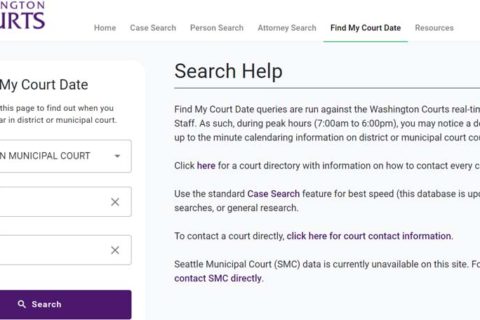The United States has created Racketeer Influenced and Corrupt Organizations (RICO) law. This law actually provides for extended criminal penalties and a civil cause of action for acts that are performed as part of an ongoing criminal organization.
However, many common people do not know yet what the purpose of RICO law is, when it was created and how this law works. Of course, it’s important to educate people to know and understand the RICO Act deeply, since it relates to crimes and punishment that will be obtained by an offender.
Let’s dive into our post to find out more information about it!
Why Was the RICO Act Created?
RICO ACT was passed by the United States Congress on October 15, 1970. This law was revolutionary, since in advance of the RICO Act, prosecutors could not legally tie organized crime leaders to those committing the crimes.
With RICO ACT, those who were ordering crimes would be prosecuted along with those who were committing the crimes on their behalf. Afterwards, the RICO ACT was designed to target known organized crime specifically such that 35 specific offenses were listed as elements for prosecution.
The main focus of the RICO Act is an attempt to fight organized crime. So far, the application and use of the law has increased important First Amendment issues that implicate the right to freedom of association.
There are three main activities that RICO criminalizes, including:
- The use of illegal income to acquire, build or operate an enterprise
- Acquiring an interest in such an enterprise, and
- Using an enterprise to collect a debt
Aside from that, the RICO law makes it an offense to make a conspiracy to be involved in any of the above activities. The actions that are defined as racketeering under RICO such as extortion, violation of the Hobbs Act of 1948 and other crimes which probably interfere with interstate commerce.
The breadth of RICO is significant that applies to any pattern of racketeering activity defined as having within the preceding 10 years committed two or more predicate acts, that’s such acts as mail murder, fraud or trafficking in obscene material on which a subsequent RICO prosecution is based or predicated.
Moreover, the RICO Act has some civil law provisions allowing private parties to gather damages if a violation happens. The use of RICO law actually increases First Amendment issues that implicate the right of freedom of association.
For example, the National Organization of Women was not successful in trying to use the RICO laws to collect damages from Operation Rescue which used protests to shut down abortion clinics.
In 1992, anti-abortion demonstrators protested outside the Buffalo GYN Women Services Clinic. Upon this incident, police arrested around 65 abortion foes who blocked a back gate to the clinic as Operation Rescue prepared to stop a 13-day campaign of mass demonstrations aimed at shutting down the abortion clinics in Buffalo.
Where Did the Rico Act Come From?
According to Wikipedia, RICO law was applied by section 901(a) of the Organized Crime Control Act of 1970 (Pub.L. 91–452, 84 Stat. 922, enacted October 15, 1970). Then, RICO law was codified at 18 U.S.C. ch. 96 as 18 U.S.C. §§ 1961–1968.
It is known that G. Robert Blakey, an adviser to the United States Senate Government Operations Committee, designed the law under the close supervision of the committee’s chairman, Senator John Little McClellan.
The law was enacted as Title IX of the Organized Crime Control Act of 1970, and signed into law by US President Richard M. Nixon. While its original use in the 1970s was to prosecute the Mafia as well as others actively involved in organized crime, its application was later broader.
How RICO Law is Applied?
One of the most successful applications of the RICO laws has been the ability to indict and or sanction individuals for their behaviour, even though some of the RICO predicate acts are extortion and blackmail. The actions that are committed against witnesses and victims in alleged retaliation or retribution for cooperating with federal law enforcement or intelligence agencies.
The RICO laws’ violations can be alleged in civil lawsuit cases or for criminal charges. In those instances, the charges could be brought against individuals or corporations in retaliation for said individuals or corporations working with law enforcement. Afterwards, charges could also be brought against individuals or corporations who have sued or filed criminal charges against a defendant.
The laws of Anti-SLAAP (strategic lawsuit against public participation) can be implemented in an attempt to restrain alleged abuses of the legal system by individuals or corporations who use the court as a weapon to retaliate against the complainant or victim or to silence the conversation of others.
RICO law can also be alleged if it can be shown that lawyers or their clients conspired and collaborated to compose fictitious legal complaints solely in retribution and retaliation for themselves having been brought before the courts.
Large-scale and organized drug networks are now basically prosecuted under the Continuing Criminal Enterprise Statute that is also known as the ‘Kingpin Statute’, even though the RICO laws probably involve drug trafficking crimes, aside from more traditional RICO predicate acts such as extortion, blackmail and racketeering.
The laws of CCE only target traffickers who are responsible for long-term and elaborate conspiracies, while the RICO law covers various organized criminal behaviours.
RICO Predicate Offenses
Under RICO’s laws, the meaning of racketeering activity is determined at 18 U.S.C. § 1961. Here’s a list of RICO Predicate Offenses:
- Any violation of state statues against murder, gambling, extortion, kidnapping, arson, bribery, robbery, dealing in obscene matter or dealing in a controlled substance or listed chemical.
- Any act of counterfeiting, bribery, theft, embezzlement, fraud, obstruction of justice, dealing in obscene matter, slavery, gambling, racketeering, money laundering, commission of murder-for-hire and many other offenses.
- Acts of terrorism.
- Embezzlement of union funds.
- Bankruptcy fraud or securities fraud.
- Criminal copyright infringement.
- Money laundering and related offenses.
- Drug trafficking: long-term and complex drug networks can also be prosecuted using the Continuing Criminal Enterprise Statute.
- Bringing in, aiding or helping aliens in illegally entering the country (if the action was for financial gain).

A bookworm and researcher especially related to law and citizenship education. I spend time every day in front of the internet and the campus library.





